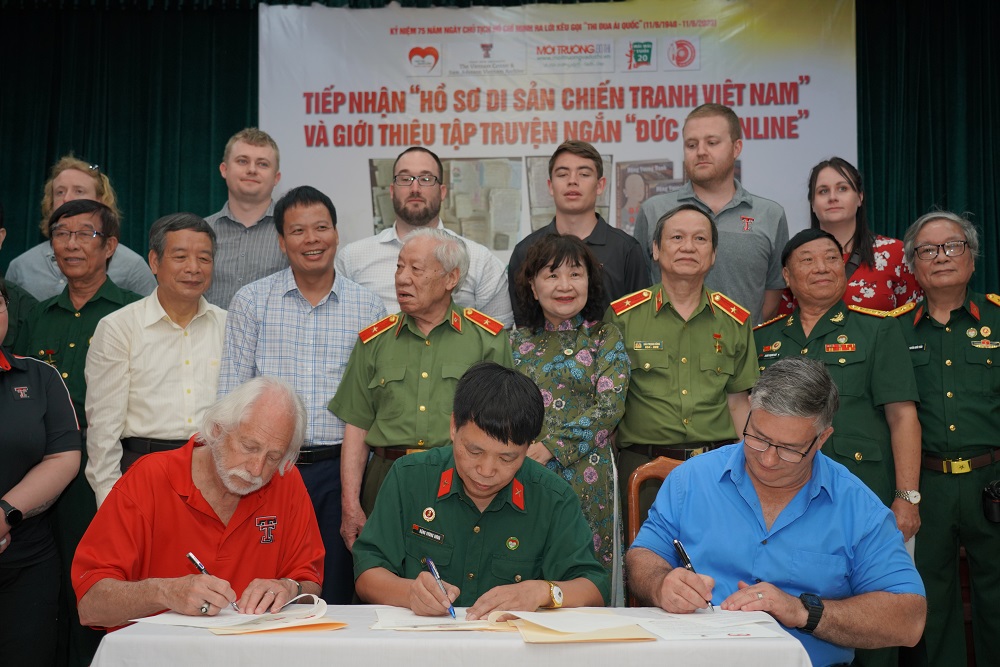
Decades after the end of the war, personal documents were returned to the families of fallen soldiers in Vietnam thanks to work done at Texas Tech.
Texas Tech University's Vietnam Center & Sam Johnson Vietnam Archives (VNCA), working with the Institute for Peace and Conflict (IPAC), returned six sets of materials to surviving families of fallen Vietnamese soldiers at a ceremony June 2 in Hanoi, Vietnam.
Among the documents returned were a set of 30 letters, five diaries and additional documents from the Combined Document Exploitation Center Collection (CDEC), which houses 2.7 million pages of material captured and microfilmed during the war.
“These letters, diaries and other documents are cherished by these families as they have received little information since the end of the war and have been waiting for something, anything, that might help them better understand the experiences and fates of their loved ones,” said VNCA Director Steve Maxner. “In addition to the families of the fallen, the room for this ceremony was filled with military and police veterans and officials who know the families and knew the fallen soldiers, as well.”
Maxner and IPAC Executive Director Ron Milam, along with seven Texas Tech students on a study abroad program, took the documents to Vietnam and attended the event.
“To be introduced as a veteran who had fought against other veterans in the room,” Milam said, “and to have our Texas Tech history students participate in returning these letters and diaries to the families of the fallen, was the ultimate in reconciliation across generations. What an amazing day!”
VNCA and IPAC were assisted by Vietnamese Col. Dang Vuong Hung in locating the families and hosting a ceremony to return the documents of their fallen loved ones. Col. Hung is a writer, director of the Soldier's Heart Center and a member of the Forever Twenty-One Center. Both centers are dedicated to working with Vietnamese families in preserving these documents and promoting education about the war.
“Many of these families are also waiting for more information on the wartime burial sites of their fallen so they may repatriate those remains from their battlefield graves and return them to their ancestral family tombs where they can be properly mourned and remembered,” Maxner said. “This is the proverbial ‘tip of the iceberg,' and we look forward to holding similar ceremonies and programs in the future as we discover ever more treasures like the ones we returned at this event.”
Article written by Allen Ramsy, Texas Tech Today.
